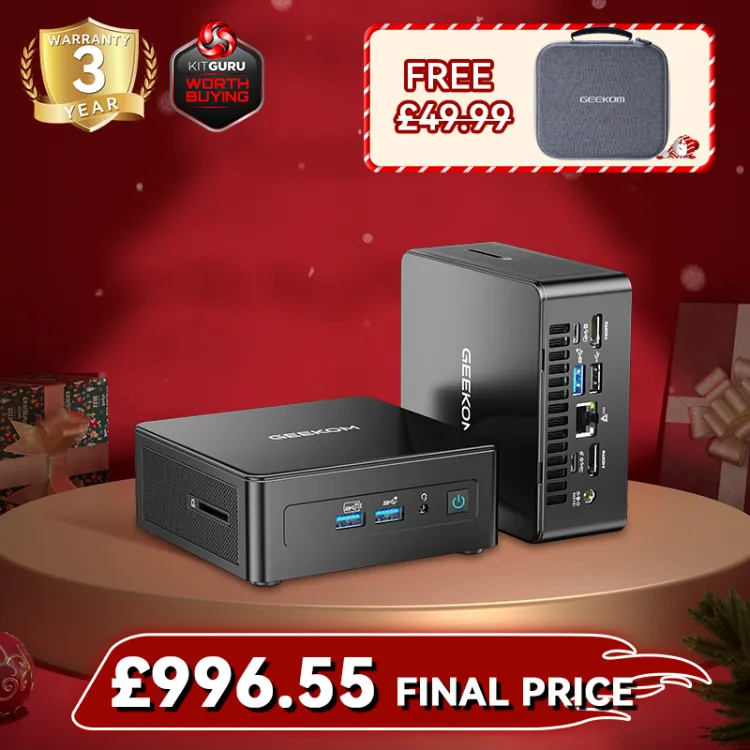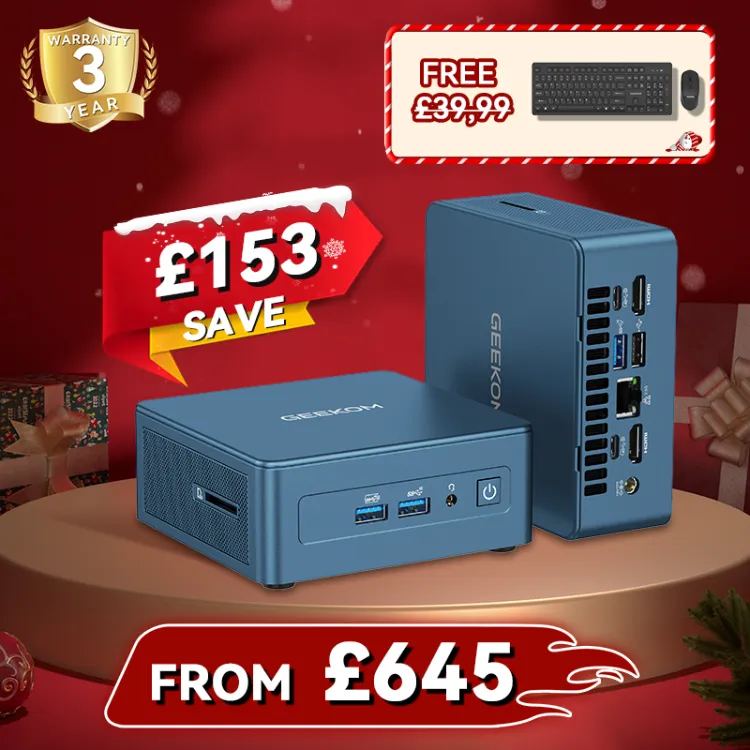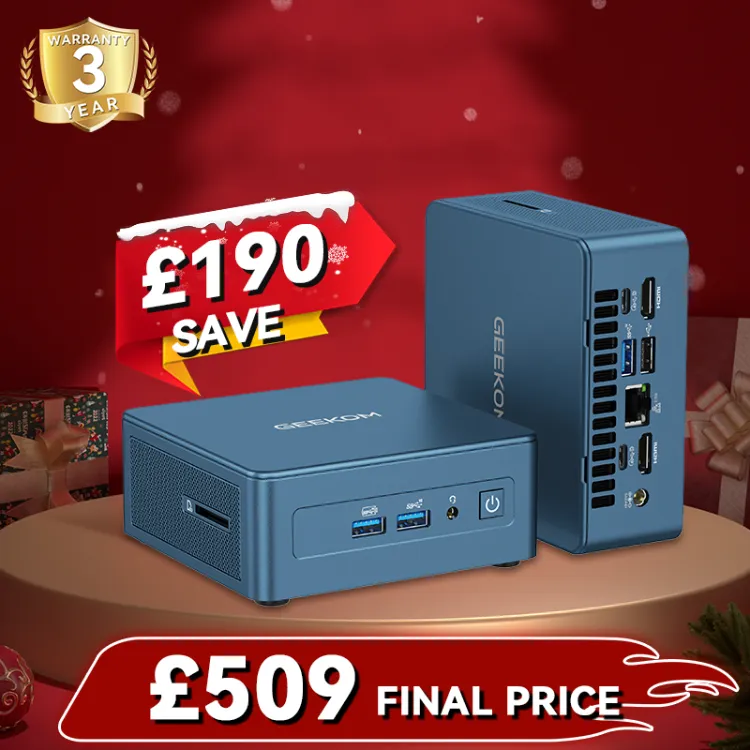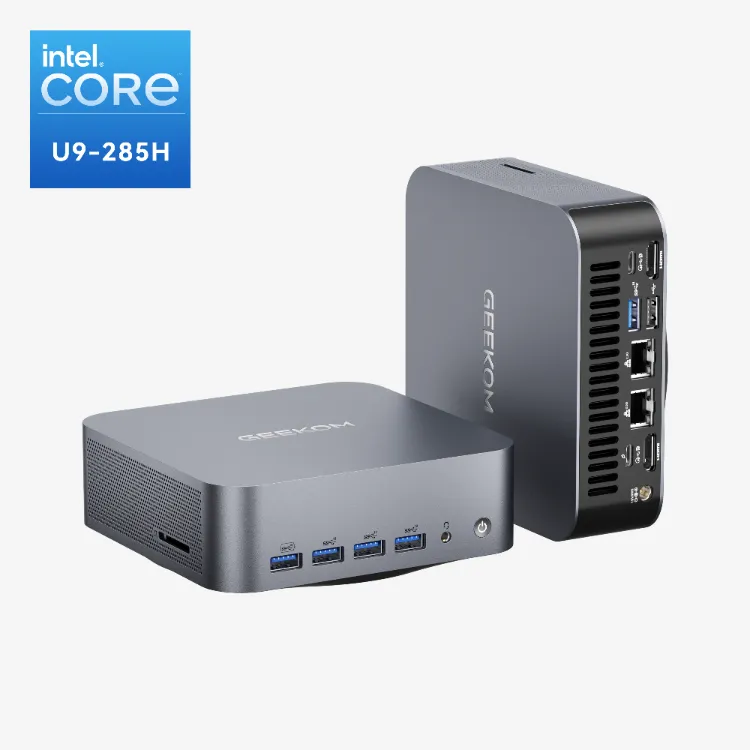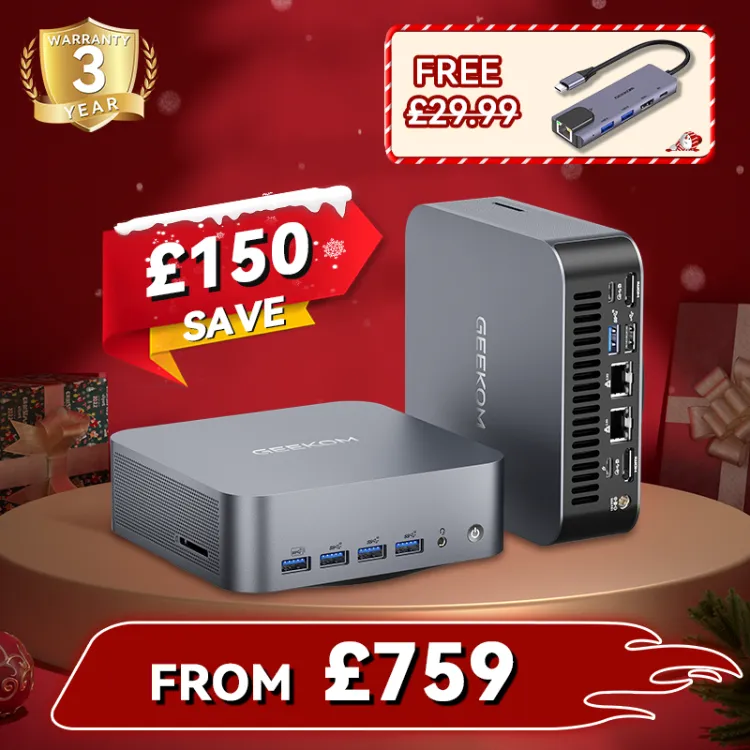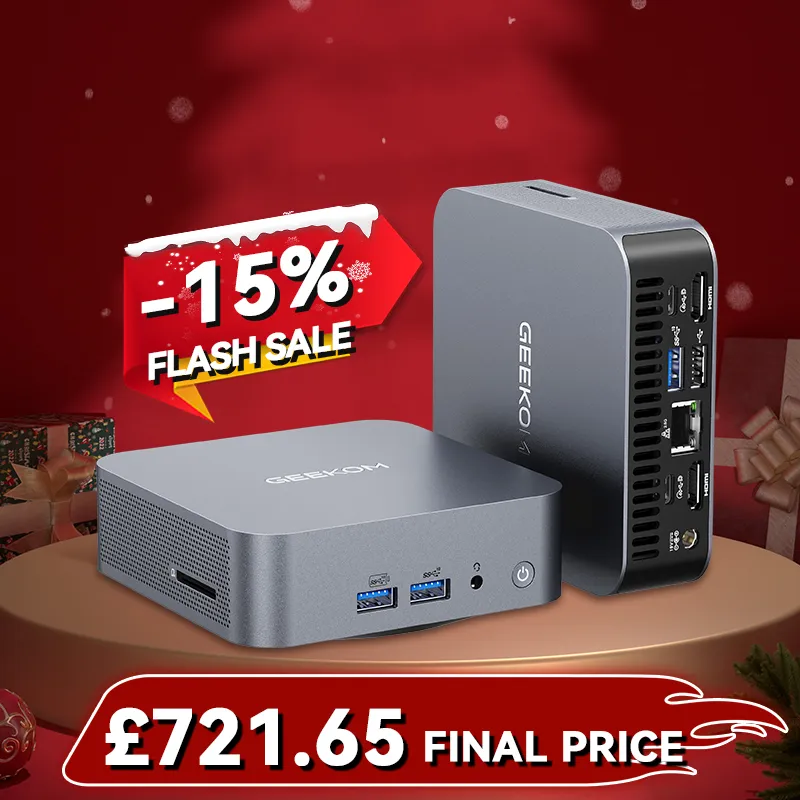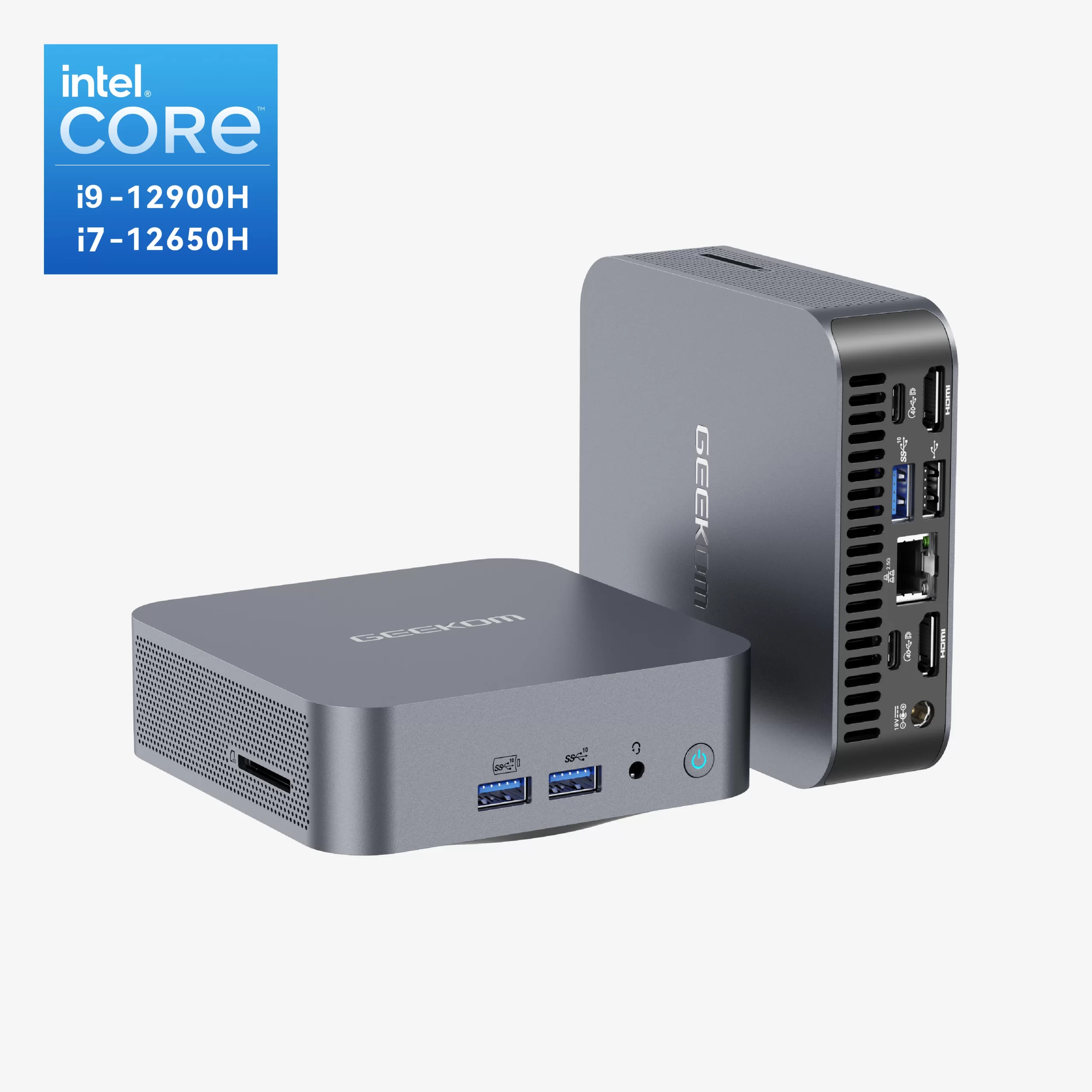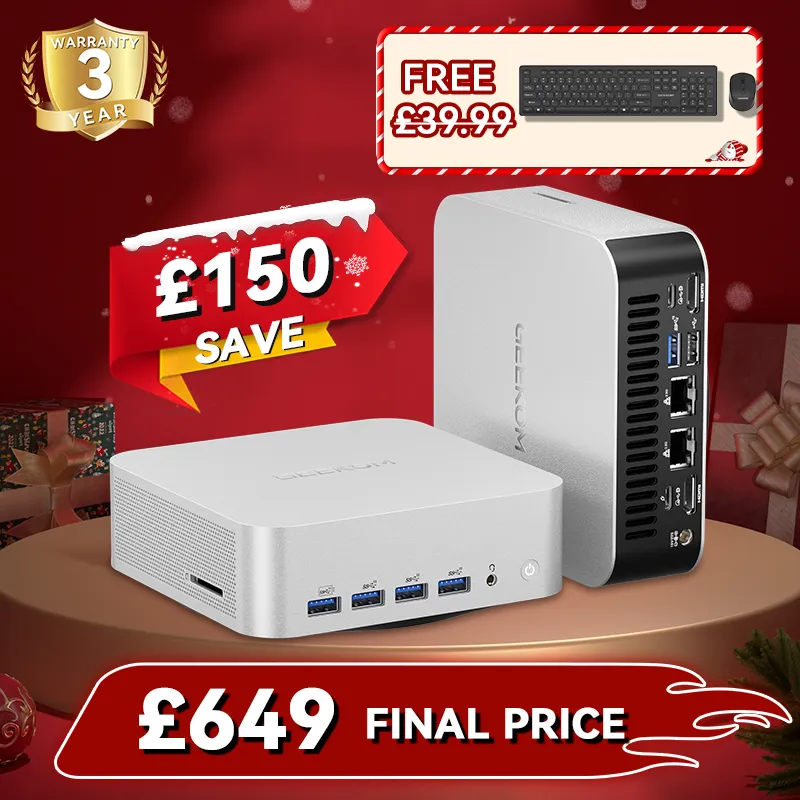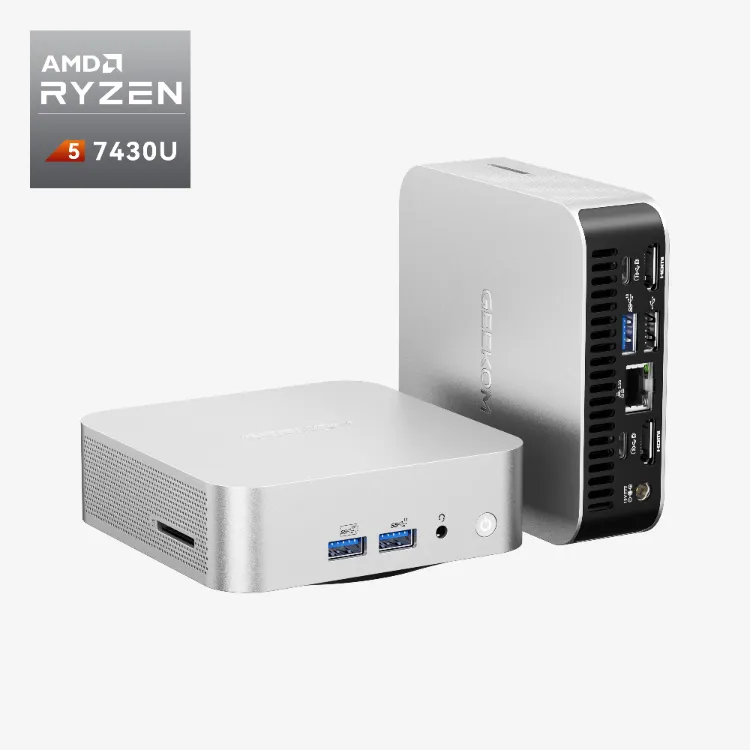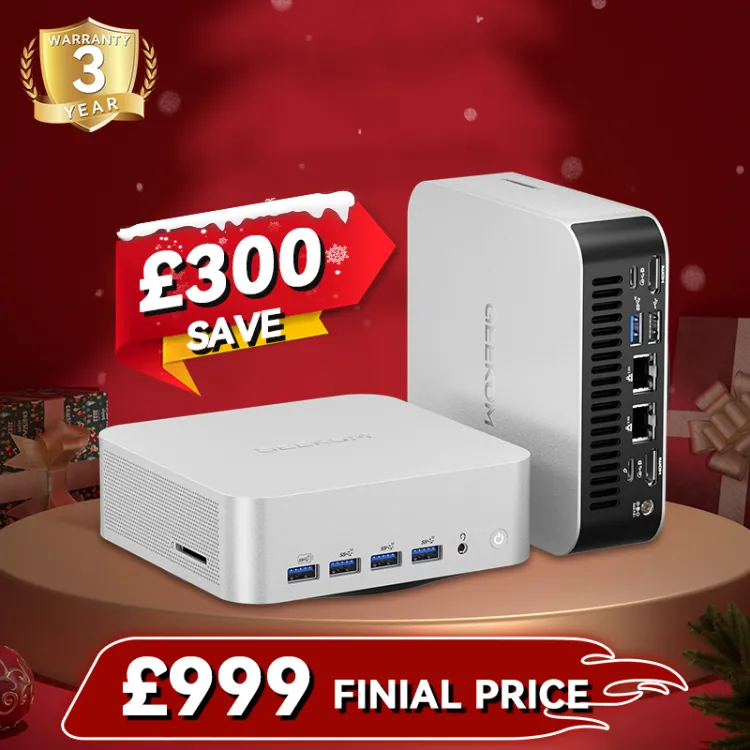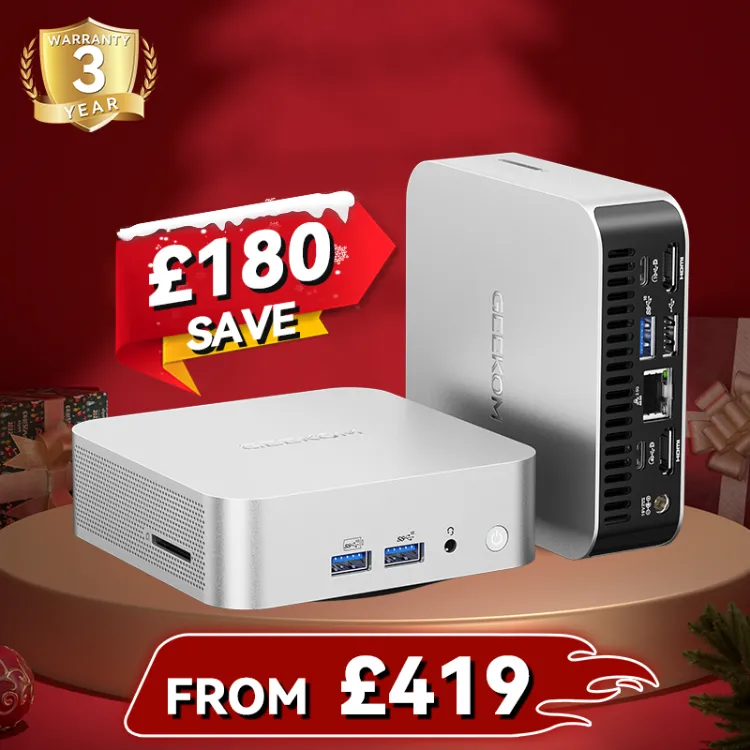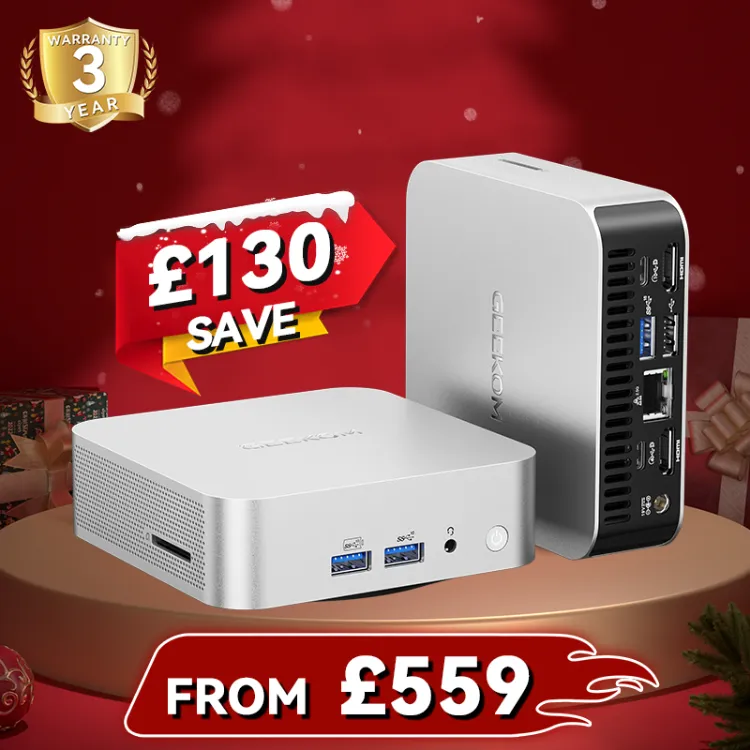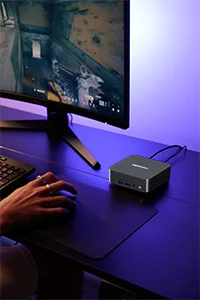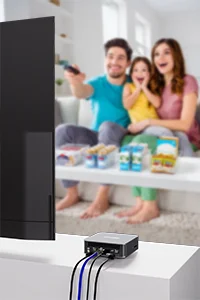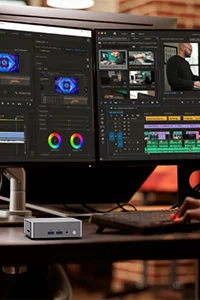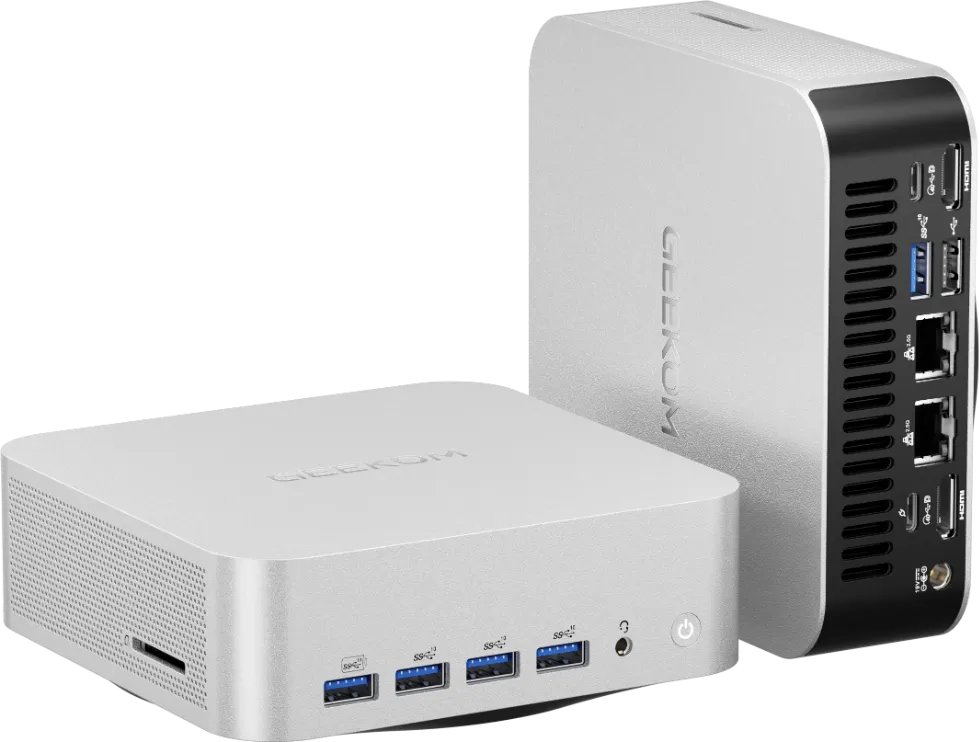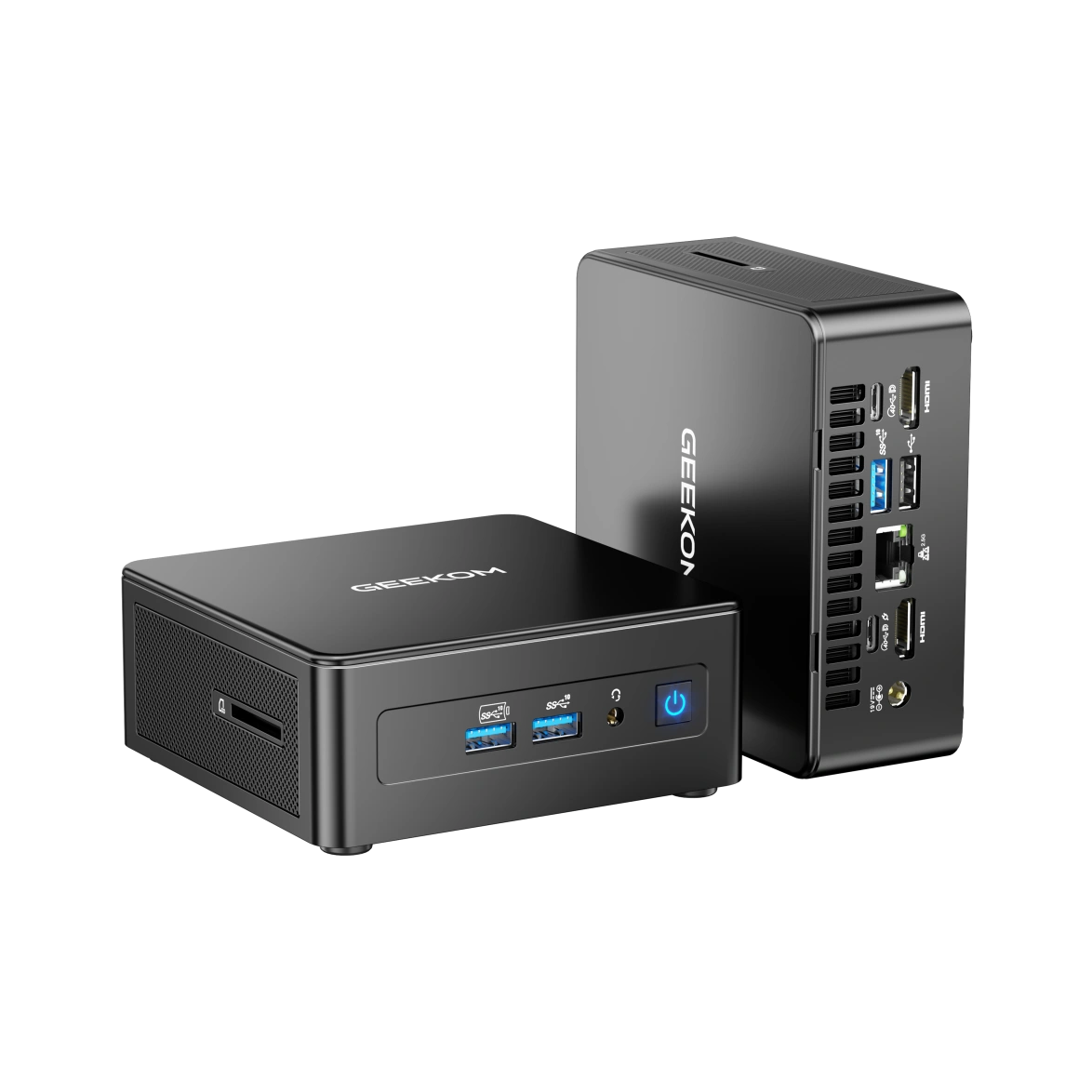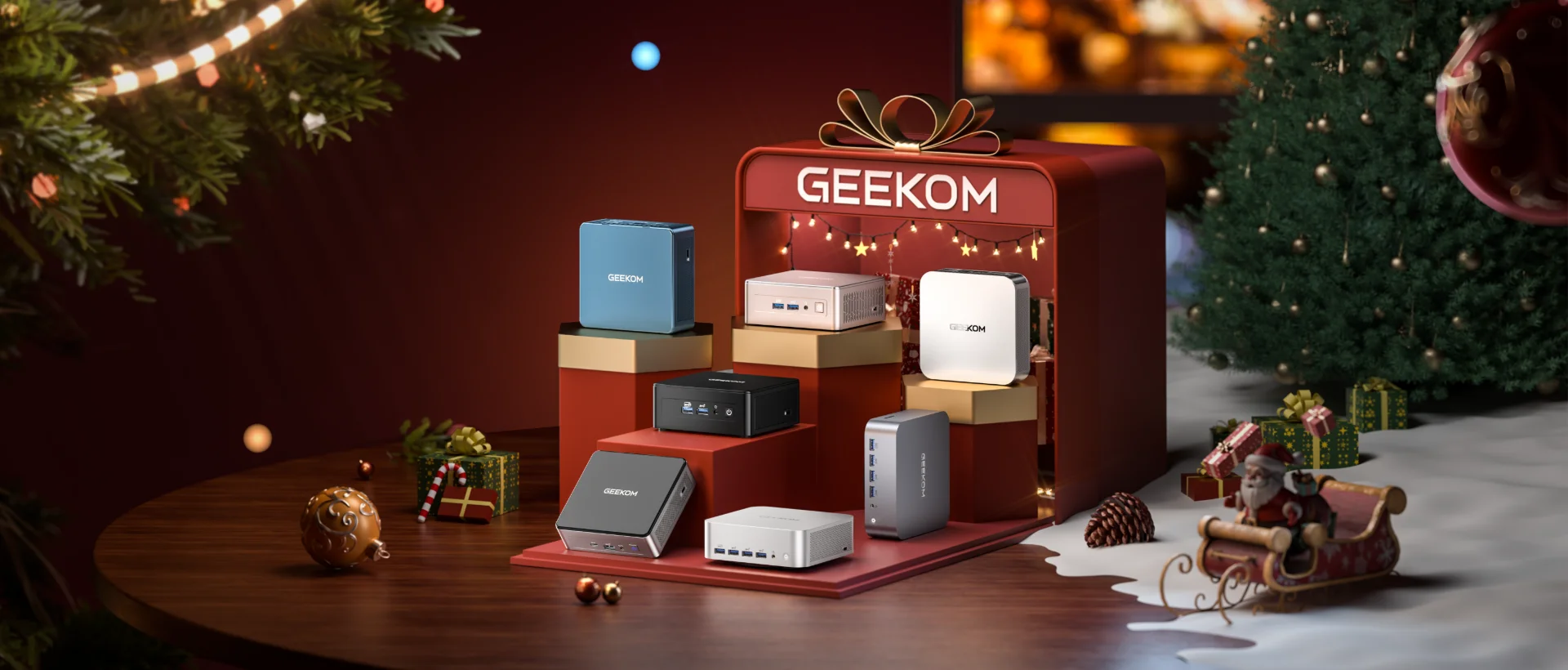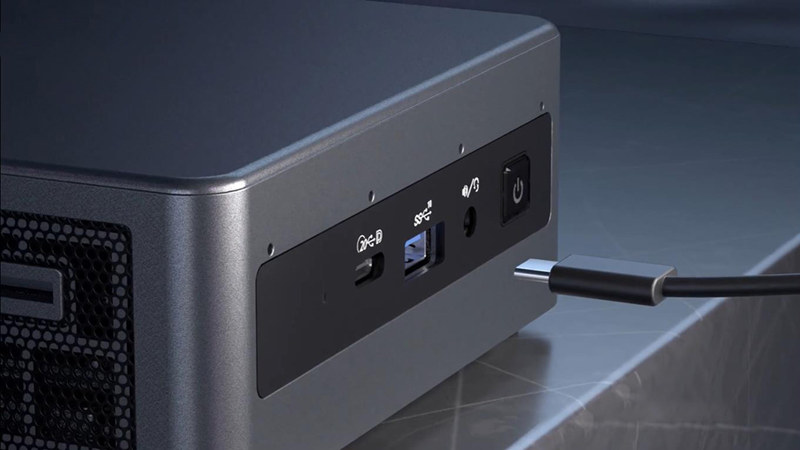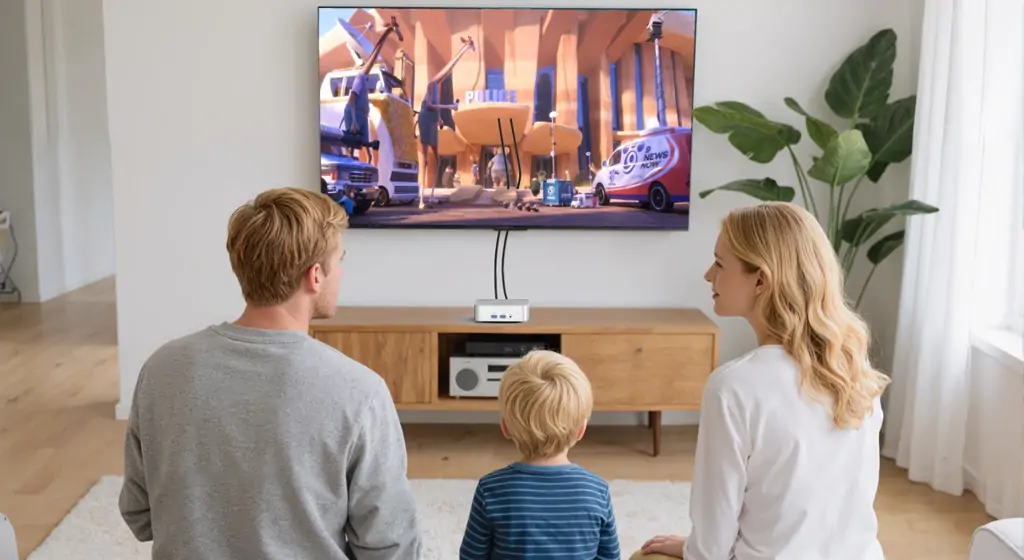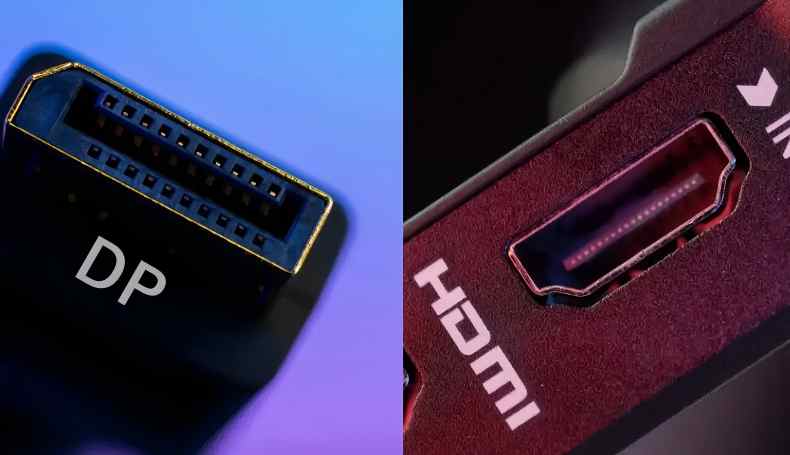Gone are the days when coding was limited to bulky desktop computers.
One such tool that has gained popularity in recent years is the mini PC.
These compact computers offer a unique set of advantages for coders. Thanks to their compact design, mini PCs are ideal for modern workspaces where saving space is essential.
Mini PCs are designed to be space-saving, making them a great alternative to a small PC. In fact, they are among the smallest mini pcs available, offering portability and flexibility without sacrificing performance.
Finding the best mini PCs for coding depends on balancing size, performance, and connectivity to meet your specific needs.
Why Choose a Mini PC for Coding?
Here’s why they are an excellent choice for coding, offering unique features tailored for coders:
1 Space-Saving Design
Mini PCs are compact and take up minimal desk space, making them ideal for small workspaces.
Mini PCs are known for their compact size. Many models also feature mounting holes or VESA mounting holes, allowing them to be attached to the back of monitors or walls for even greater space savings. For coders, this means a clutter-free workspace and the ability to set up multiple coding stations without feeling cramped.
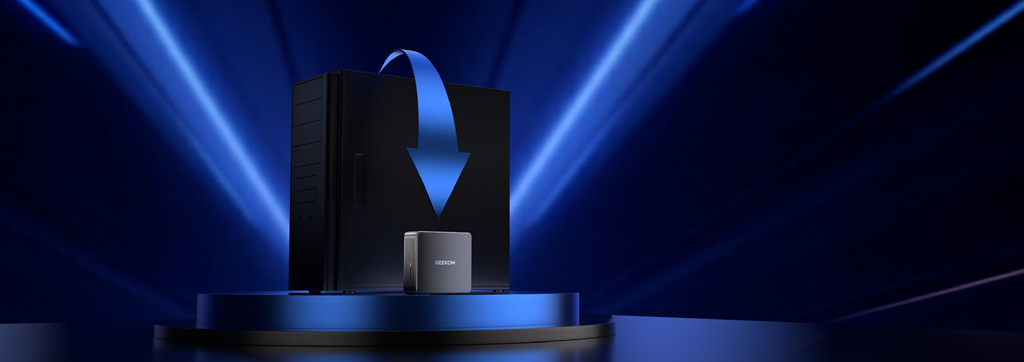
2 Portability
Their lightweight build allows you to easily move your setup between home, office, or co-working spaces. Whether you’re a freelance coder or work in a collaborative environment, the portability of Mini PCs is a significant advantage. This flexibility allows you to code wherever inspiration strikes.
3 Energy Efficiency
Mini PCs typically consume less power than traditional desktops, helping you save on electricity bills. Mini PCs are designed to be energy-efficient without sacrificing performance. This not only reduces your carbon footprint but also results in lower electricity bills—a win-win for both you and the environment.
4 Cost-Effective Solution
Mini PCs are generally more affordable than full-sized desktops. Cheaper mini PCs are available for those on a budget, offering solid performance for basic coding tasks. This makes them a great entry point for students or hobbyists.
Investing in a high-quality mini PC often costs less than building a custom desktop rig. This cost-effectiveness makes mini PCs an attractive option for budget-conscious coders who don’t want to compromise on performance.
5 Quiet Operation
Many mini PCs use fanless designs or low-noise cooling systems, ensuring a distraction-free coding environment. Traditional desktop computers can be noisy due to their cooling systems. Mini PCs typically employ quieter cooling solutions, providing you with a quieter and more focused coding environment.
Mini PC Hardware and Specifications
When it comes to choosing the best mini PC for coding and development, understanding the hardware and specifications is crucial. Not all mini PCs are created equal—some are designed for basic office apps, while others pack the raw power needed for demanding coding tasks, photo and video editing, or even machine learning.
A powerful mini PC should feature a modern processor, such as the latest Intel Core or AMD Ryzen chips, to ensure smooth multitasking and fast compile times. For software development and heavier workloads, look for models with at least 16GB of RAM, though 32GB or more is ideal for those working with large projects or running virtual machines.
Storage is another key factor. An SSD (Solid State Drive) not only speeds up boot times but also accelerates file access, which is essential for coding and video editing. Opt for at least 512GB of SSD storage if you work with large files or multiple projects.
If your workflow includes photo and video editing or AI-related tasks, consider a mini PC with a strong integrated GPU or support for an external GPU. This will provide the performance boost needed for rendering and processing graphics-intensive workloads.
Ultimately, the best mini PC for you will balance processing power, memory, and storage to match your specific coding needs. Whether you’re building software, editing videos, or experimenting with machine learning, choosing the right mini PC ensures a smooth and efficient development experience.
Best Mini PCs for Coding
If you’re wondering which mini PC is best suited for coding, you’re in the right place.
GEEKOM A8 Max AI Mini PC
- 8945HS processor with a boosted NPU deliver up to 39 TOPS
- AMD Radeon™ 780M Graphics
- The all-metal casing and frame are pressure-tested up to 200 kg for drop and impact resistance
- Equipped with a dual copper heat pipe cooling system, ensures twice the heat dissipation efficiency
- Rich interfaces: 8 USB ports, SD card reader, and Kensington Lock, worry-free expansion
- Dual 2.5 G Ethernet ports, Wi-Fi 6E and Bluetooth® 5.2
- Pre-installed with Windows 11 Pro, support Linux and Ubuntu
- Superior Quality & 3-Year Worry-free Warranty
GEEKOM IT15 AI Mini PC
- Intel® core™ Ultra 9-285H or U5-225H
- Powered by the Intel Core Ultra 9-285H with 99 TOPS (NPU+GPU+CPU) AI performance
- Intel® Arc™ 140T GPU, supports Ray Tracing and XeSS
- 2.5G Ethernet port, intel® bluetooth® 5.4 and Wi-Fi 7
- Blazing Fast with USB4 and quad-display support
- Innovative and efficient cooling system – IceBlast 2.0
- Sleek, compact, scratch-resistant, and VESA-compatible
- Pre-installed with Windows 11 Pro, ready to use
The IT15 features Intel Core Ultra 9 285H (16 cores, 16 threads, up to 5.4GHz) or Ultra 5 225H (14 cores, 14 threads, up to 4.9GHz) providing excellent multi-threaded performance for:
- Compilation speed: Multiple cores dramatically reduce build times for large codebases
- Virtual machines: Run multiple development environments simultaneously
- Container development: Docker and Kubernetes workflows run smoothly with ample CPU resources
Memory and Storage Advantages
Up to 64GB DDR5-5600 memory and up to 2TB NVMe PCIe 4.0 SSD storage, GEEKOM IT15 Mini PC can offer significant benefits:
- Database development: Enough memory to run local database instances for testing
- Large project handling: Plenty of RAM for IDEs, browsers, databases, and multiple applications
- Fast file operations: PCIe 4.0 SSD ensures rapid project loading, Git operations, and file searches
Multi-Display Productivity
Supports up to four 4K displays, GEEKOM IT15 Mini PC is perfect for developer workflows:
- Code + documentation + terminal + browser across multiple monitors
- Debugging interfaces on separate screens
- Design comparison when doing frontend development
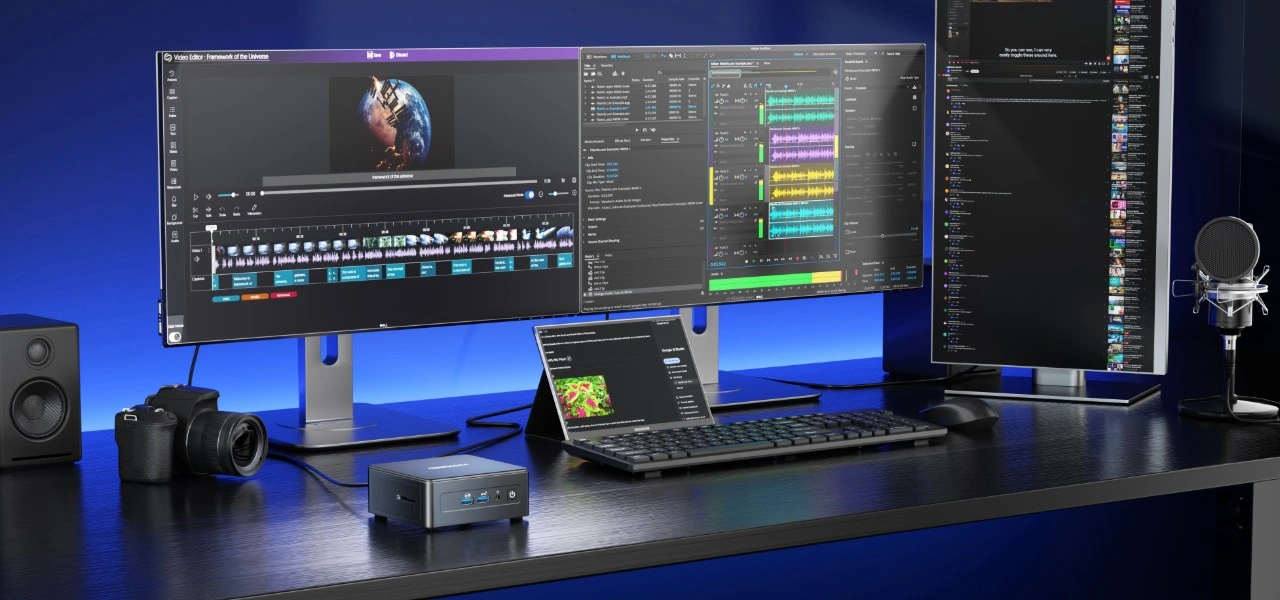
Modern Connectivity
Features USB4 support with 40Gbps transfer speeds, 2.5G Ethernet, and Wi-Fi 7
- Fast external storage access via USB4
- Reliable networking for remote development and cloud services
- Future-proof connectivity for emerging development tools

Space Efficiency
At just 0.46 liters, it’s 1/80th the size of a standard mid-tower PC
- Clean workspace: Minimal desk footprint or VESA mount behind monitor
- Portable development: Easy to transport for remote work
- Quiet operation: Advanced cooling system maintains performance without noise distraction
Development Environment Flexibility
Pre-installed with Windows 11 Pro and supports Linux distributions like Ubuntu and Manjaro
- Cross-platform development capabilities
- Containerization support for modern DevOps workflows
- Professional OS features for enterprise development
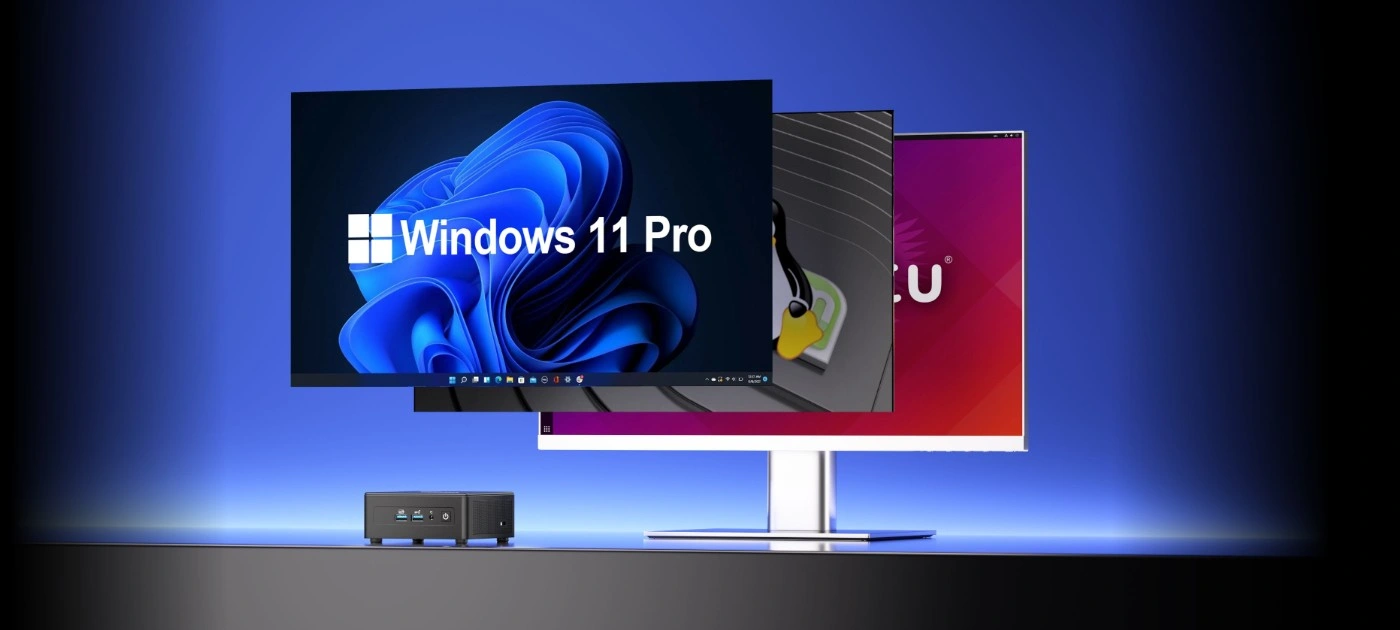
AI Development Ready
99 TOPS for INT8 across all AI accelerators on the chip, The integrated NPU (Neural Processing Unit) alone provides 13 TOPS for dedicated on-device AI workloads:
- Local AI model testing and development
- Machine learning experimentation
- AI-assisted coding tools that leverage local processing
Conclusion
The IT15 offers professional-grade performance in a compact form factor, making it ideal for developers who need powerful hardware but want to maintain a clean, efficient workspace. The combination of high core count, ample RAM, and fast storage makes it particularly well-suited for modern development workflows involving containers, microservices, and full-stack applications.
Investing in the best mini PC for coding can revolutionize the way you approach programming tasks. Don’t compromise on performance or space. Visit GEEKOM UK now to find your perfect coding companion.
Frequently Asked Questions (FAQs)
Which operating system is best for coding on a mini PC?
Linux distributions like Ubuntu are popular among developers for their flexibility and open-source nature. However, Windows and macOS are also viable options, depending on your coding needs.
Do I need a dedicated graphics card for coding?
For most coding tasks, a dedicated graphics card is not necessary. However, if you plan to work on tasks like video editing or machine learning, a GPU can significantly boost performance.
What is the price range for a good mini PC for coding?
Mini PCs come in various price ranges to suit different budgets. You can find budget-friendly options starting at £179, while more powerful models can cost upwards of £1,000.


